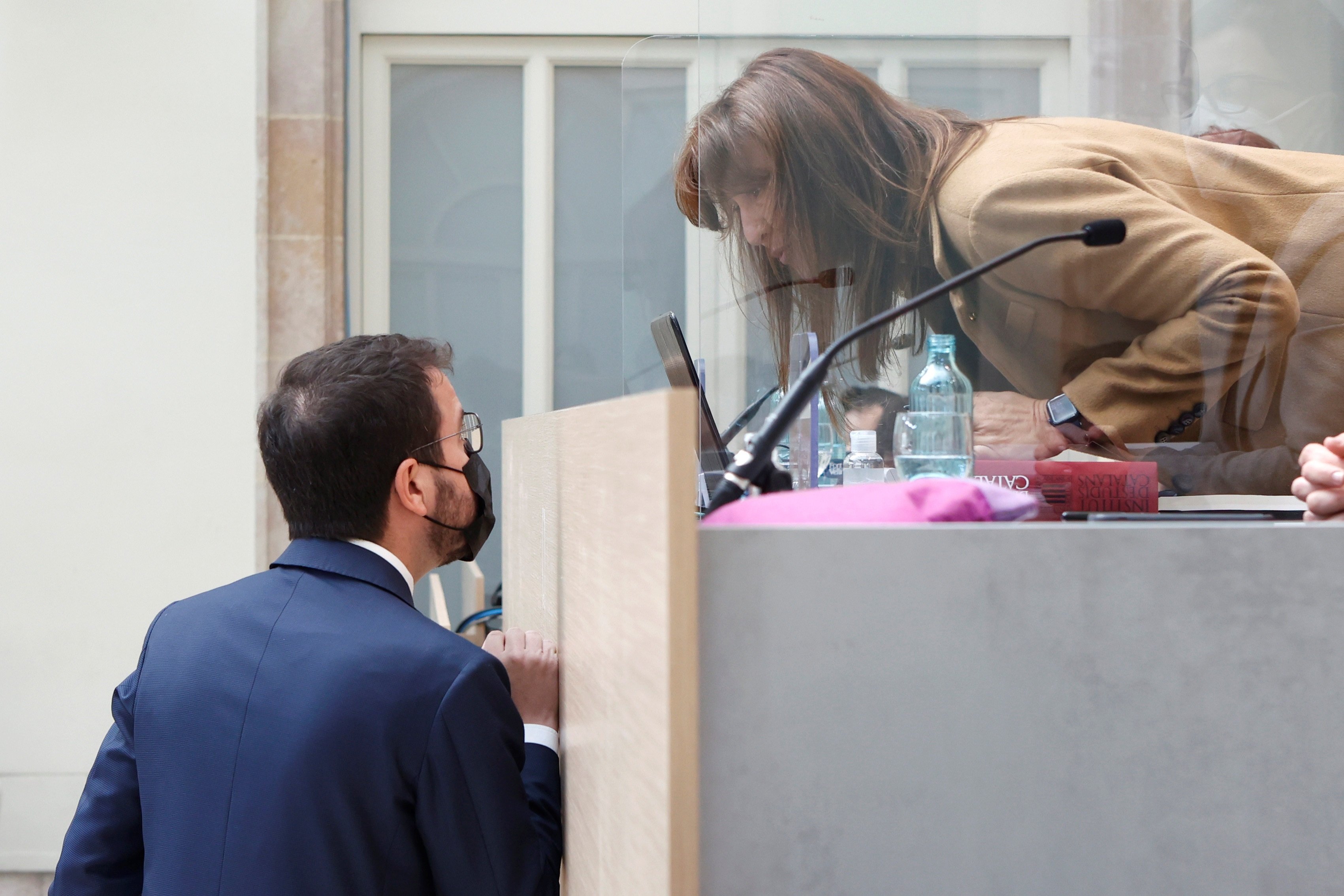In the 1980s, when Catalan independence was the cause of a small minority, it was common for protests to end with the exchange of blows. Rallies drew few people and a lot of incompatibility. Once such case was in 1988, at the Fossar de les Moreres in El Born, where the pro-independence left met. As many as six activists were injured in the brawls between the two factions of the Movement in Defence of the Land (MDT): the Socialist Party for National Liberation (PSAN) and the Independentists of the Catalan-speaking Countries (IPC). More than three decades have since passed and now support for independence is in the majority. But the disputes have not disappeared, although they might seem more civilized this year. The Borràs case is a mere trifle.
This is highlighted by an absence: if nothing changes between now and Catalan National Day this Sunday, the annual Diada independence demonstration will this year not be blessed by the presence of the president of Catalonia, Pere Aragonès. He believes that his participation would not be "coherent" with the message that the rally wants to send: "against independentists", against parties and institutions. Instead, he will participate in the Òmnium Cultural event, as Nació Digital has reported. This very Monday, the Catalan Republican Left (ERC) did not hesitate to voice its criticisms and accusations against the rally organizers, the Catalan National Assembly (ANC). "It does not contribute to the Catalan Republic that some who declare themselves pro-independence criticize other pro-independence people or deny that they are pro-independence. It is the most absurd thing in the world," assured ERC's Marta Vilalta at her party's weekly executive press conference. As a party they will be present, but they have not yet specified how. In private, ERC voices explain that, if the approach were to change, they would rethink Aragonès's participation. But they also admit that nothing suggests that anything will change.
The response of the president of the ANC, Dolors Feliu, is symptomatic, insinuating that president Aragonès "is not committed to independence" and that he prefers to "take photos" with the Spanish government at the dialogue table. Together for Catalonia (Junts) has also taken the opportunity for some virtue signalling. They immediately confirmed the presence of all their ministers at the demonstration, contrasting with ERC, and called for people "to fill the streets".
This break, between a part of those in government and a part of the civil-society independence movement, is only the tip of the iceberg, while the suspension of Laura Borràs as the speaker of Parliament, a case that is still simmering, has been another tip. But the rumbling from deeper down is something else: a strategic debate on how to deal with the political conflict with the Spanish state. While the most hard-line sectors of the Assembly propose a fourth pro-independence list to compete with ERC, Junts and the CUP at the ballot box, the members of the executive are bringing their differences to the surface. One part of Junts is in favour of leaving the Catalan coalition government because they believe that time is being wasted and no progress is being made, a move that they want to decide on through an internal consultation. Meanwhile, ERC, who have advanced their party conference to autumn to shore up the leadership of Oriol Junqueras, are trying to calm down the internal debates. And they are not moving from their strategic commitment, the dialogue table, where they currently sit alone. Not without contradictions and turbulence, such as the undercover police inserted into pro-independence organizations.
This debate will drag on at least until the general policy debate in Parliament, in the last week of September. It will be a new litmus test for the cohesion of independence. There, president Aragonès plans to make a proposal for self-determination. Nothing suggests that until then, in the attempt to build a shared road map, the daggers will stop flying from one side to the other.
Derivatives of the Borràs case
In the Palau de la Generalitat, as well as in Parliament. Last week, the differences in the independence movement became evident again in the Catalan chamber, when the secretary of Junts, Aurora Madaula, was left all alone in her defence of reversing the suspension of Laura Borràs as speaker. A case that is still brewing. This Tuesday, the Bureau meets again, in regular session, with other derivatives of the case on the table: what happens to the advisers, paid from the public purse, who Borràs had as speaker? There are six of them: the chief of staff, the deputy chief of staff, an adviser, two technical advisers and a manager. Ciudadanos have already registered a letter demanding the "renewal of the appointments of the presidential advisers" and that "the revocations have the same effective date as the suspension of Borràs". Their situation will be in the hands of ERC's Alba Vergés, deputy speaker of the chamber who is performing the functions of speaker.

